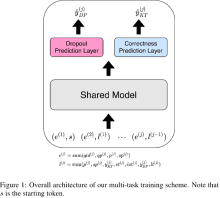The first step to getting good grades
Check out your current level with Fast CAT in 1/4 of the usual test time.
The first step to getting good grades
Suppose you have an exam due in 2 months. Where do you begin? The most common and probably the best way to kick off the journey would be to figure out where you are standing right now. Then the best scenario is to take the test you are planning for.
However, standardized tests are usually very expensive and take a lot of time. If it is paper-based, it only gets worse with the time and money to drive to the test center. Some tests provide official practice sets so you can take them at home for free. Speaking of SAT, the practice test is 3 hours long with 154 questions. There you go.
But let's admit it. 154 questions? It's a lot. This lengthy and tedious nature pushes many students to skip this step and jump right into studying without setting a benchmark. This inspired us - WHAT IF you could accurately measure your skills with a shortened test? Short enough to take it effortlessly but still provide accurate insight. That would be a game-changer.
Fast CAT is the game-changer in test prep
Our Fast CAT algorithm adaptively selects a set of questions that can best assess a student’s test preparedness. In other words, as you solve each question, the AI selects the next question that can identify your level of knowledge most accurately.
Why is it good? Students only have to solve a minimal number of questions instead of a full-length test to find out their scores. On average, Fast CAT technology reduces the length of tests by 1/4. The exact length varies according to the test, but in general, each diagnostic test takes around 30-40 minutes. For instance, SAT which is the most widely taken exam in the U.S. for college admissions is 3 hours long, which is 180 minutes. Powered by Fast CAT, R.test for SAT takes only 44 minutes, exactly a quarter of the original length. (The rule of thumb is that it requires at least around 10 questions for each ‘section’ such as reading, math, and science.)
By now you would be wondering what does Fast CAT stand for? CAT stands for computerized adaptive testing, a widely used methodology in academic assessments where test questions adapt to the examinee’s level of knowledge. Our Fast CAT only makes it faster, more accurate, and accessible through advanced machine learning. R.test’s AI lab has a proven track record of applying the algorithm in various exams including SAT, TOEIC, and ENEM, and is leading the way in developing the most efficient way of assessing student knowledge.
But just being fast is not good enough.
You should not be thinking of other ‘mini tests’ you can easily find online where they randomly ask a few questions like a pop quiz. Simply reducing the length only decreases the accuracy of the assessment. Without technology, it’s pointless.
Fast CAT ensures that the diagnostic test condenses the length but carries the same assessment power as the full-length exam. This is why R.test users find it reliable and accessible. Fast CAT allows students to check their status whenever and how often they need to - at the beginning, in the middle, or right before the exam.
“This is amazing! I think it would be helpful in any stage but especially in the middle of test preparation because it gives a reality check of where you are at and what you need to improve.” (Mohammed, 10th grade)
If you don’t know where to begin, R.test is here for you.
Just solve a fraction out of a full test. Fast CAT will estimate your test score. Get a quick diagnosis to speed up your study journey.
Let R. test set a smart path for you! Discover your strengths and weaknesses with R. test Let R. test set a smart path for you! Discover your strengths and weaknesses with R. test
